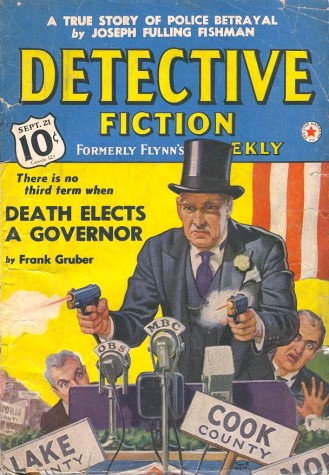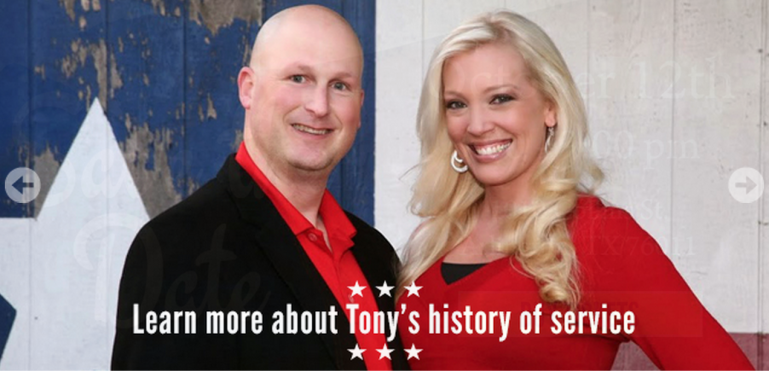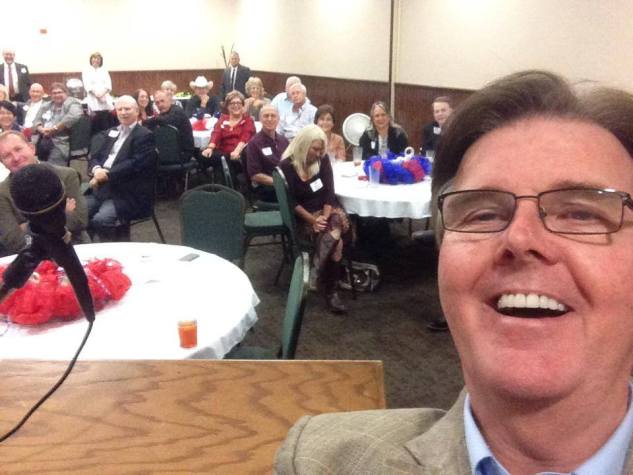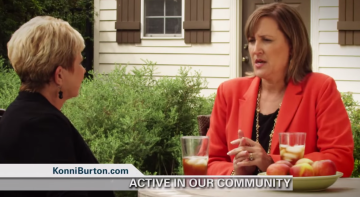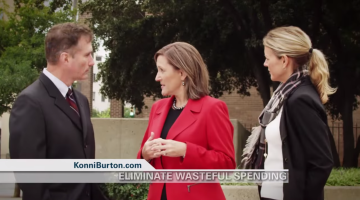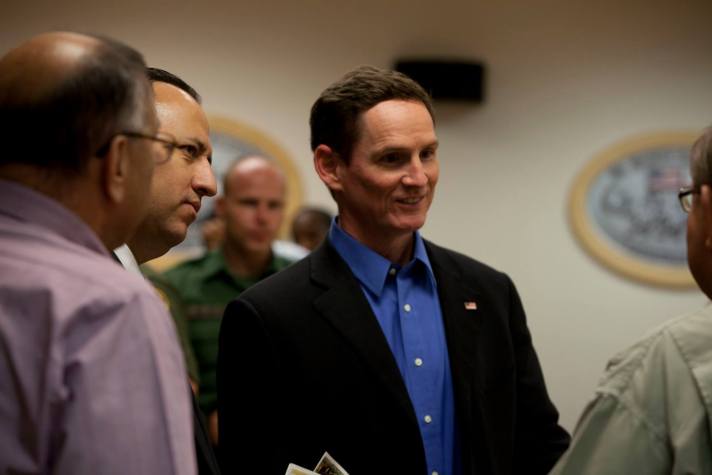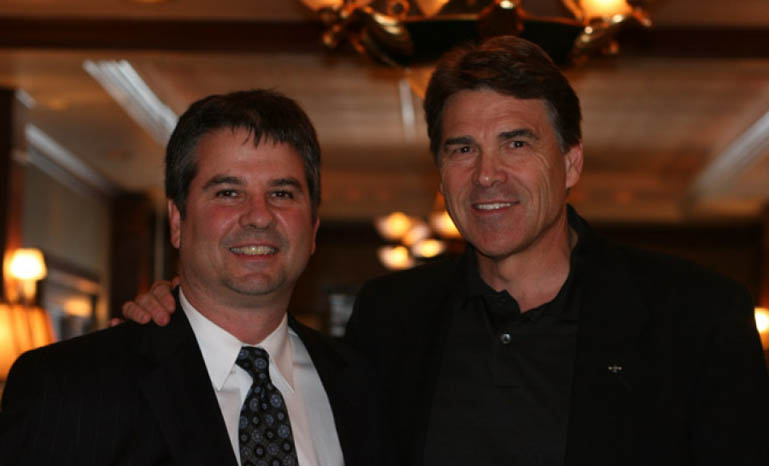
If you’re a politician who has taken a public position against gay marriage, as Greg Abbott has, there’s a tricky thing you have to do to keep your position cogent. You need an argument for a same-sex marriage ban that doesn’t contradict or aim to invalidate the Supreme Court’s 1967 decision in Loving v. Virginia, which struck prohibitions against interracial marriage, including in Texas, and established marriage as one of the core, basic rights enshrined in the Constitution.
That’s proven tough for many anti-gay marriage politicians. When the Supreme Court declined to consider lower court rulings earlier this month, effectively making same-sex marriage legal in a number of states, Texas Sen. Ted Cruz, who used to argue cases before the high court and so should know better, released a statement asserting that “marriage is a question for the States.”
Yet in Loving, Chief Justice Earl Warren wrote in the court’s unanimous opinion that marriage is one of the “basic civil rights of man,” and that the “freedom to marry … cannot be infringed by the State.” When the GOP candidate for attorney general in Wisconsin responded to a question about Loving by saying that he would have defended a ban on interracial marriage in court, too, he was at least being consistent.
When Abbott met with the San Antonio Express-News editorial board recently, reporter Peggy Fikac asked him about Loving. He had defended the state’s gay marriage ban in court recently—would he have defended a ban on interracial marriage? Abbott took a different tack:
“Right now, if there was a ban on interracial marriage, that’s already been ruled unconstitutional,” Abbott pointed out. “And all I can do is deal with the issues that are before me … The job of an attorney general is to represent and defend in court the laws of their client, which is the state Legislature, unless and until a court strikes it down.”
When I said I wasn’t clear if he was saying he would have defended a ban on interracial marriage, he said, “Actually, the reason why you’re uncertain about it is because I didn’t answer the question. And I can’t go back and answer some hypothetical question like that.”
Some hypotheticals are difficult to answer. What if the South had won the Civil War? Is it nobler for a Danish prince to suffer the slings of outrageous fortune or take arms against them? How many roads must a man walk down? This one shouldn’t be particularly difficult. It’s especially odd because Abbott is himself married to a Hispanic woman—though the anti-miscegenation laws struck by Loving were particularly targeted to black-white relationships.
But perhaps Abbott was wise to have dodged the question, because he likely would have defended a ban on interracial marriage, according to his own principles and record. He wouldn’t have known how not to. Abbott hasn’t shown a whole lot of independent spirit during his tenure as AG—he’s bound, he says, to defend whatever the Legislature vomits up:
“Believe me, I would love it,” he added, “The state would look a whole lot more like me right now if I did abandon my role and exercised my magic wand and decided what cases I would defend and which I didn’t, and therefore allowed me to dictate policy in this state.
“But I think that by doing what I do, I am maintaining the policy that I think is appropriate, and that is for each elected official to fulfill their constitutional obligations,” he said.
But while the Attorney General may have to mount some kind of defense of the state, he has “a tremendous amount of discretion” over how aggressively to prosecute those cases, how “effectively” to prosecute cases, and which cases to bring to court. Abbott has been using his stint as AG to campaign for governor for years—he’s brought failed case after failed case against the federal government, costing Texas taxpayers millions. But his hands are tied when it comes to gay marriage and school finance, he insists. He has to aggressively defend bad laws to the last.
Abbott’s tenure has included a number of instances in which he pursued comically bizarre legal arguments in cases for which he could have no reasonable hope of victory—seemingly forfeiting his powers of discretion. In 2008, Abbott chose to defend the state’s ban on the sale of sex toys, a case that emerged from the fallout of Lawrence v. Texas. Over the years, Abbott has deployed novel legal arguments against gay marriage. But this wasn’t a case about gay marriage, a subject that still animates sincere moral disagreements. This was a case about every American’s god-given right to buy dildos.
At the time, anti-sex toy laws were widely understood to be unconstitutional, but Abbott suited up for battle. The state, his lieutenants argued with straight faces before the 5th Circuit, had an interest in “discouraging prurient interests in autonomous sex and the pursuit of sexual gratification unrelated to procreation.” The state of Texas has a pressing interest, Abbott said, in discouraging you from masturbating or blowing your boyfriend. That was just six years ago.
As The Dallas Morning News notes, several past attorneys general, including Abbott’s predecessor John Cornyn, have refused to take part in cases when they felt they’d be in the wrong. But it seems there’s no law so bad Abbott won’t defend it.
Here’s the thing: We’re just two weeks away from Election Day, and we still don’t know much about what kind of governor Greg Abbott would be. Apart from the fishing ads and vague policy proposals, and even given his lengthy record as attorney general, we don’t necessarily know much about what drives him, or his leadership style.
Next session, if the GOP sweeps important races, Abbott will face a divided Legislature, with House Speaker Joe Straus and Lt. Governor Dan Patrick representing very different policy preferences and styles. Which will Abbott rely more on? How forceful will he be in asserting his own will over the Legislature? Perry used his longevity to turn a relatively weak office into a powerful one: Under Abbott, would the position revert to its former status, or would Abbott seize Perry’s reins?
From time to time, we get little glimpses of Abbott and how he thinks about government. At the second debate, we caught one when Abbott, flustered, said he wouldn’t prevent the Legislature from repealing the Texas DREAM Act. Miscegenation-gate is another interesting episode. Abbott seems more like a follower than a leader, which isn’t a very good sign when you consider the forceful personalities he’ll be clashing with next year.

